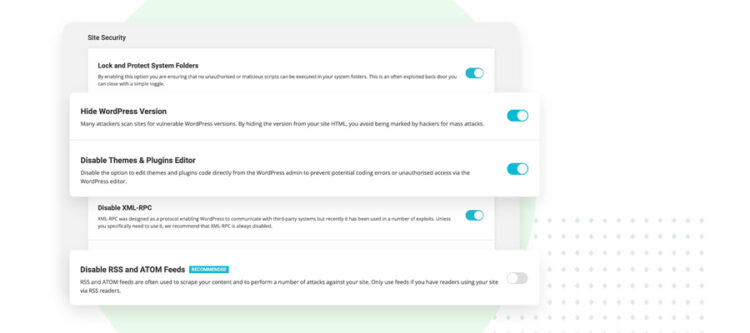
“Welcome to the Chaos.”
These are the words every new hire at Automattic sees on their first day, emblazoned across the company’s online handbook. They are designed not to instill fear, but to prepare the newly-minted Automattician for life in a fast-moving, globally-distributed company. Working at Automattic sometimes feels like chaos, but over 950 employees wouldn’t have it any other way.
Sonal Gupta is one of them. She describes the moment she first read those words. They gave her immediate comfort because they confirmed that yes, working in this environment can feel overwhelming, but she wasn’t alone.
“It is overwhelming,” she says. “But as soon as you learn to embrace the chaos rather than resisting it, it makes it so much easier to understand Automattic’s culture.”
If the chaos is so normative that it appears in Automattic’s Field Guide, that’s a message from the company to new employees that it can be a deliberate, even cultivated attribute. Sonal recognized that in order to thrive at Automattic, one needed not only to tolerate a certain level of fluidity and uncertainty, but to embrace the parts of it that work, and to push for the improvement of those that don’t.
“To embrace the chaos means surrendering to it and understanding that there is going to be a barrage of information coming at you from all angles,” says Sonal. “It will take a little time to have a process in place, but you’re not expected to just get it immediately.”
During her first two weeks, Sonal completed a support rotation, an Automattic policy that serves as a hands-on introduction for new employees in all departments and at all levels. She was paired with a mentor, trained alongside a group of other new hires via text chat in Slack, and then worked in customer support, helping users navigate everything from creating a new website to registering a new domain. She was initially surprised that there would not be a video, or even an audio chat component to this training — just text. Here the written word is supreme.
Sonal joined Automattic almost three years ago, initially serving as a legal counsel. She drew on her experience as a lawyer who had advised hedge funds on topics like corporate structure and regulatory compliance. She also had many opportunities to leverage her deep knowledge of the business of technology, which she had developed as the cofounder of Rank & Style, a listing platform that applies a data-driven approach to the curation of fashion and beauty products.
After more than a year in her original role, Sonal embarked on a new adventure: leading Automattic’s Other Bets division, a skunkworks composed of about 40 Automatticians spread across six teams. They focus on projects that aren’t immediately or directly connected to the company’s flagship products (like WordPress.com or WooCommerce), but that nonetheless hold the potential to become viable product lines in the foreseeable future.
We develop or acquire products that fall into three categories — things that we need to exist for Automattic’s operations, things that we build as experiments or that are useful tools for our community, and things that have the potential for substantial revenue growth. A lot of our products cross multiple categories.
The division grew out of a desire to dedicate roughly five percent of the company’s resources to generate Automattic’s future success stories. Other Bets aims to nurture disruptive innovation, even if the products it creates don’t have immediate revenue potential under the company’s current business model. This series of bets on the future has begun to pay off, and Other Bets’ products now represent about 10 percent of Automattic’s revenue, blazing a trail for sustainable, rapid growth.
A new software suite that an Other Bets team has developed is known as Happy Tools, a collection of apps that make distributed collaboration easier and more productive. Its first product, Happy Schedule, is designed to help globally-distributed employees to coordinate their work schedules even if they operate across multiple time zones.
Even though Sonal’s focus areas these days are no longer centered around the legal realm, she says her background in law serves her well on the Other Bets team. “To be successful at a company like Automattic, you have to be able to communicate effectively via text,” she says. “We’re using all different kinds of messaging and internal blogs in order to communicate with the entire company. So I think my legal background was really helpful in being able to convey messages and information to people in a clear and succinct way.”
Personally, I’m not a micromanager. I like to trust people and give them autonomy. But I keep in touch with them very regularly and I think it becomes clear pretty quickly if somebody is not doing work. We look at performance, and we look at communication at a distributed company. Communication is oxygen.
One of the tenets of the Automattic Creed is “I will communicate as much as possible, because it’s the oxygen of a distributed company.” On fully distributed teams, written communication skills are paramount because so much collaboration happens over asynchronous text chat. Everyone in the company needs to be able to distill their ideas into plain, concise written language. In a division like Other Bets, the need is amplified, because these teams ideate new products and features, and must regularly communicate their value to the rest of the company. Chaos is manageable — and even productive — only when it’s matched with sufficient doses of clarity, empathy, and alignment.
There are many reasons a company would choose an environment characterized by organized chaos. When team members have more freedom and autonomy, they can better employ their critical thinking to take ownership of complex problems, instead of relying on a regimented chain of command to provide instructions. Organized chaos sparks cross-functional collaboration that allows fluid teams to remove and prevent organizational bottlenecks.
Not everybody can thrive in such an environment. Chaos rewards people who, like Sonal, are comfortable communicating clearly and frequently. When distributed companies are made up of clear communicators, chaos transforms from a hurdle to an asset.
